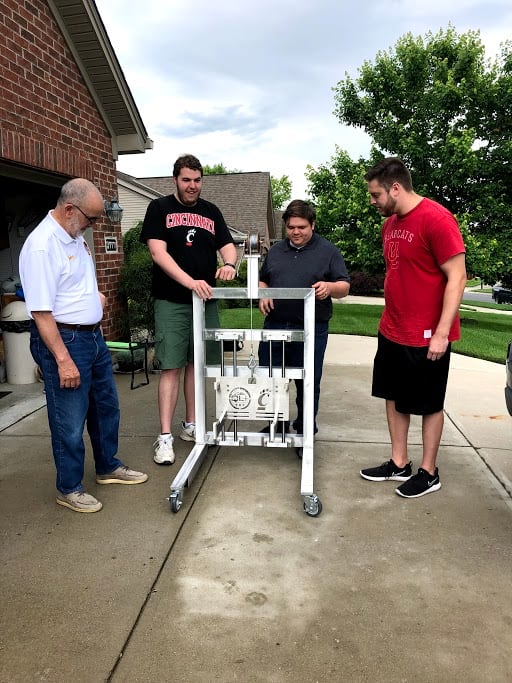The Department of Veterans Affairs has opened its second in-patient gambling addiction recovery center, right in the heart of Sin City.
VA officials announced this month that the Las Vegas VA Residential Recovery and Renewal Center, or LVR3, will host 30- and 45-day programs for gambling and substance abuse treatment.
The facility is the second of its kind in nearly 50 years at VA: the department’s first gambling addiction center – a trailblazing treatment facility that was the first of its kind in the country for addressing compulsive gambling – opened at the Brecksville, Ohio, VA Medical Center in 1972.
Now part of the Louis Stokes Cleveland VA Medical Center, it was the sole inpatient treatment center for gambling addiction, drawing more than 100 veterans annually from around the country for care.
Tim Jobin, chief of behavioral health at the VA Southern Nevada Healthcare System, said the new LVR3 “fills a gap in our mental health continuum of care.”
RELATED

“The staff has dedicated countless hours of planning, mindfulness and reviews to make this happen here today,” Jobin said in a release.
LVR3 has 20 beds, including a separate wing with five beds for women veterans, and will focus on individual treatment plans using a “whole health approach” geared to emotional, physical and mental healing.
“There is definitely a great need for this here in Las Vegas,” said LVR3 Program Manager Roxanne Untal in a release. “Gambling and substance abuse already exist here … the biggest goal is to provide residential care for veterans when more intensive care is needed than what they would receive in outpatient treatment.”
A study conducted in the VA’s New England region funded by the Massachusetts Gaming Commission found that among a small group of veterans, 260, a third had gambled in the previous year and 6 percent screened positive for a gambling disorder.
According the study, those in the gambling disorder group also had histories of anxiety, depression or PTSD and some reported having suicidal thoughts.
The National Council on Problem Gambling estimates that roughly 1 percent of the adult U.S. population meets the clinical criteria for compulsive gambling and up to 3 percent would be considered problem gamblers.
VA officials said veterans interested in the programs at LVR3 or Cleveland can talk to their primary care provider, either at VA or in the community care system.
“Even if you aren’t an enrolled veteran yet, if this is something you need to address, come on in. Any licensed provider can put in a consult, and we are doing quick turn-arounds for screening them for admission,” Untal said.
Patricia Kime is a senior writer covering military and veterans health care, medicine and personnel issues.





